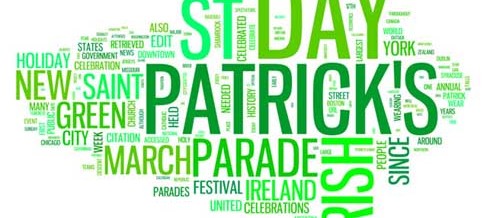Intern Blog Series: The History of St. Patrick's Day
Aisles at stores in the United States and all around the world have been packed with green attire and decorations for weeks now in preparation for Saint Patrick’s Day. Certain cities and universities are known for their lavish parades and celebrations of this day. But, many people celebrating the holiday don’t know what the day is actually celebrated for and the issues surrounding it. Saint Patrick’s Day is an Irish culture and religious observance of their patron saint. It is held on March 17th every year on the approximate date of his death. It is believed that Patrick was kidnapped when he was 16 and found God while being held captive. He fled and became a priest and was known for bringing Christianity back to Ireland. It was on the liturgical calendar in Ireland beginning in the 1600s. This meant it was a holy day of obligation for Catholics. Between the 1960s and 1990s, there were tensions between the Catholics of the region and the unionists over the holiday. It was declared a public holiday however the unionists still saw it as a religious celebration. Once the conflict ended the holiday was officially declared as a celebration to showcase Irish culture. Celebrations in Ireland have become more elaborate due to increased celebrations in other areas such as the United States, Canada, and Australia. It is known as a day of drinking in many of these regions. Since this date happens in the middle of the Christian lenten season many even say that it is okay to break a lenten promise of not drinking alcohol for the day. Due to this, criticisms of the celebrations that are held for this holiday have become widespread. The day has been linked to excessive drinking, public intoxication and inappropriate festivities that have strayed from the original meaning of Saint Patrick’s Day. Church officials have voiced opinions of trying to reign back the celebrations and emphasize the religious aspects once again. In addition, people dressing up as leprechauns has caused for stereotypes of the Irish to arise as in the 19th century they were seen as derogatory symbols. While the celebration of Saint Patrick’s Day in other regions that outside of Ireland are not a bad thing as many people have Irish ancestry or wish to celebrate the saint, it is imperative to know the reason behind the holiday and the negative connotations certain aspects of celebrations could have. This raises a very important question of whether or not there is an appropriate way of observing a holiday outside of one’s culture with the values and beliefs of another culture in mind?
Anne Marie
]]>
